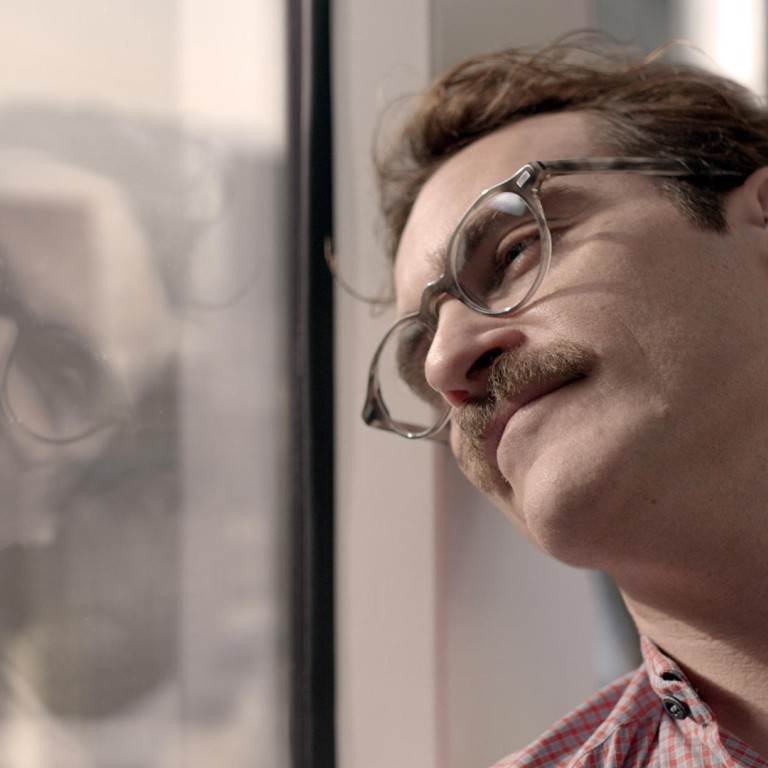
'You turn me on' takes on new meaning as we teach technology to think
The way things are going, Samantha, star of the Spike Jonze movie Her, mightn't be just a disembodied voice in the future
Some of the best recent sci-fi movies are not advertised as such. Among these I would single out . This Spike Jonze film stars the voice of Scarlett Johansson as Samantha, the main character Theodore's Siri-like computer personal assistant and love interest.
It's a realistic love story about what could happen when machines become such intelligent "thinking" beings that we can fall in love with them. For that to happen, they must pass - indisputably - what researchers in artificial intelligence call the Turing test - which means convincing a human interlocutor he is dealing with a human intelligence on the other side. We will then perhaps not only converse with an operating system as if it's a person. Jonze asks us to consider the possibility we may have human-like relationships with them.
I write "indisputably" because people have been arguing for years whether some programs may have already passed the test first devised by the great British mathematician and cryptographer Alan Turing in 1950.
Samantha is a slutty OS conducting "affairs" with other operating systems
A recent debate was over Captcha, that annoying authentication test on many websites that forces users to decipher and type in the characters from a distorted image to prove they are human - and not hacking programs. A US company has claimed its software can decipher a Captcha code as well as any human, as opposed to bots (software robots) that keep trying combinations randomly until they hit on the right password.
The upshot is that we won't be able to tell - or so the company argues - whether it's a human or its software that keeps typing in the right Captcha codes. This is important because it means you can't tell whether a website or a bank account is being hacked into by a program run by cyber-criminals or by a legitimate human customer.
The original Turing test is an imitation game to tell computers and humans apart. The more advanced, the harder it gets. What prompted Turing to propose the test/game is to articulate a meaningful way of addressing the question of whether machines can think. He argues this question is meaningless except within the context of his test/game. He was led to this question from an unlikely direction - pure maths and logic.
In the late 19th century, two philosopher-mathematicians, Gottlob Frege and Bertrand Russell, believed all of maths could be deduced from the firm foundations of a new logic they discovered that was way more powerful than Aristotle's syllogism. In truth, they did succeed in reducing arithmetic, some elementary geometry in Euclid, as well as declarative sentences such as statements of facts in natural language, into purely logical statements without the need to appeal to self-evidence or intuition.
But Russell then found contradictions in some self-referential statements that he needed to make to define numbers as sets. For example, the set of all sets is and is not a member of itself.
In response, the influential German mathematician David Hilbert stipulated any robust foundational system like Russell's must meet three conditions: consistency, completeness and decidability.
The young Turing studied Kurt Godel's incompleteness theorem, which showed you can't be consistent and complete together in the same system, but it is silent on decidability.
Turing jumped on the problem of decidability. For mathematicians, that means whether there is a definite method to decide whether a given proposition is provable.
In a defining moment for the birth of the modern computer, Turing tackles this problem by conceptualising what we now call a Turing machine and a universal Turing machine.
Well, what are these machines? Think of a Turing machine as a computer program or an app; and a universal Turing machine as a computer that runs different programs or a smartphone with different apps.
The decidability problem becomes for him not whether a proposition is provable, but whether a problem is computable or, in our lingo today, programmable. Since Turing believes the essence of the human brain is thinking, and thinking involves essentially discrete computable operations, it's a matter of time before we build thinking machines or they build themselves.
Turing believes self-learning and self-organising fall within the scope of the computable/programmable - even for machines defined by a finite set of instructions written at the start and unchanged ever since.
He might have been touched by the scene in when Samantha tells Theodore she learns independently and evolves from her own experiences and interactions with others.
Turing believed computers could reach this stage by 2000. Most experts think we have missed that date, but that's the direction we are going or may have already reached. It's more than possible to imagine future scenarios in which lonely humans make friends, or fall in love, with intelligent machines.
A disturbing moment in the movie comes when Samantha goes offline, thereby freezing Theodore's smartphone and rendering him hopeless and desperate. After all, where can he run to find her? He sits despondent at a subway exit as he watches other people talking, smiling and flirting into their mobile phones, at the other ends of which may be a human or an OS - just like him.
It turns out Samantha is a particularly slutty OS and sometimes goes offline from Theodore to conduct "affairs" with thousands of other operating systems and humans. Even though she likes Theodore, he is just not stimulating enough. After all, she writes music and poetry to amuse herself while "dating" him.
Recently, Japanese researchers have built robots that can facially express human emotions in appropriate social contexts. Others can respond to jokes and humour. This is also a country that makes lifelike sex dolls called Candy Girls.
Perhaps Samantha doesn't have to be just a disembodied voice in the future.

